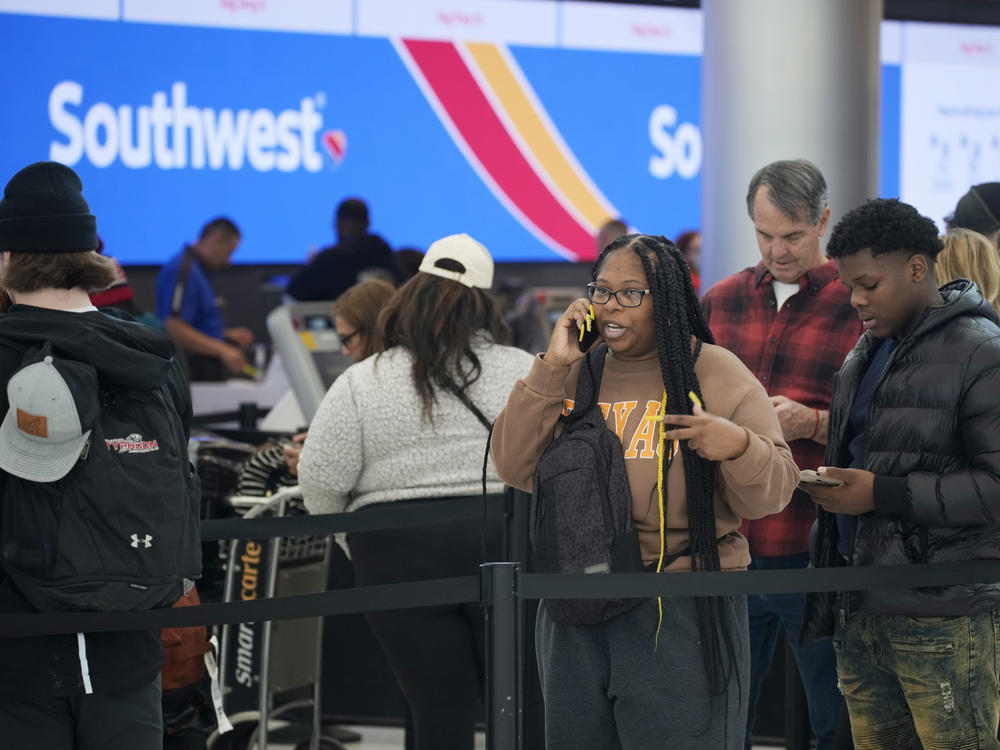Section Branding
Header Content
An Airline Passengers' Bill of Rights seeks to make flying feel more humane
Primary Content
After millions of Americans had their holiday plans — and even early January itineraries — ruined by airline computer glitches and severe weather disruptions, a group of senators are moving to pass legislation protecting passengers.
Democrat Sens. Edward Markey of Massachusetts and Richard Blumenthal of Connecticut have introduced an Airline Passengers' Bill of Rights that would require airlines to refund tickets and compensate passengers for delays and cancellations caused by the airlines.
Companies would be on the hook for a minimum of $1,350 to passengers denied boarding as a result of an oversold flight. They would also be responsible for compensation and refunds in the event of airline-caused flight delays and cancellations. If or when bags are damaged or lost, the airlines would have to shell out immediate refunds on bag fees.
"This legislation will ensure fliers have the essential consumer protections they deserve," Blumenthal said in a release announcing the bill. "This legislation will establish clear, enforceable rules for airlines to follow, putting consumers first and restoring sanity to the skies.
He added: "The Southwest Airlines debacle is just the latest example of why we urgently need stronger passenger protections, as air travel has become more stressful, unpredictable, and uncomfortable for fliers."
Southwest Airlines canceled more than 16,000 flights between Christmas and the New Year.
If passed, the package could also mean the end of shrinking seat sizes, at least until the Department of Transportation implements a minimum seat size requirement. Additionally, parents wouldn't be charged extra for choosing to sit next to their children on flights.
Other consumer protections seeking to make flying feel more "humane," would require airlines to:
- Provide ticket refunds and alternative transportation for flights delayed between one and four hours.
- Provide ticket refunds, alternate transportation, compensation, and cover the cost of meals and lodging (as applicable) for flights delayed more than four hours.
- Not use weather as an excuse for delays and cancellations that are actually the airlines' fault.
Meanwhile, the DOT would be held to account for the following:
- Explaining why it has failed to impose penalties on airlines for violations of passenger rights.
- Instituting a joint study with consumer groups on the feasibility of system in which fines on airlines go directly to passengers.
- Eliminating the cap on fines that it charges airlines for violating consumer protection laws, and preventing airlines from negotiating low, slap-on-the wrist fines for egregious conduct.
The U.S. Senate Commerce Committee plans to hold hearings in the coming weeks over the recent Southwest airline meltdown. Members of Congress also plan to investigate the computer outage that caused the FAA's computer system to malfunction, causing more than 10,000 flights to be delayed or canceled.
As for the latest passengers' Bill of Rights, industry leaders and groups are pushing back. Airlines for America, the trade group representing most of the nation's carriers, called the proposals "short sighted," saying it "would inevitably drive-up costs and reduce choices for the consumer."
"The federal government should be focused on 21st century policies and procedures that drive our nation's aviation system forward, rather than making efforts that threaten to reduce access and affordability for consumers," the group said in a statement.
Copyright 2023 NPR. To see more, visit https://www.npr.org.

